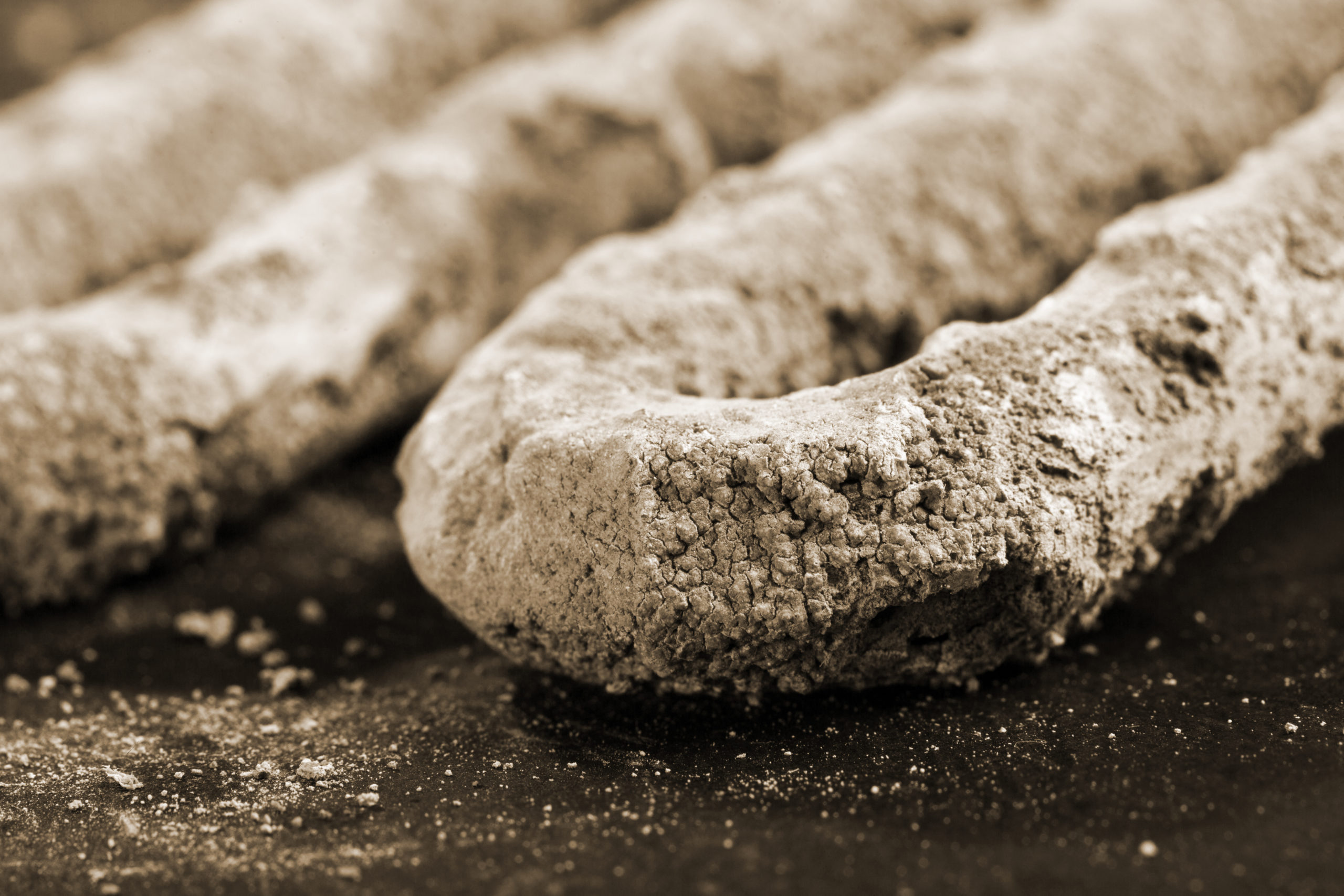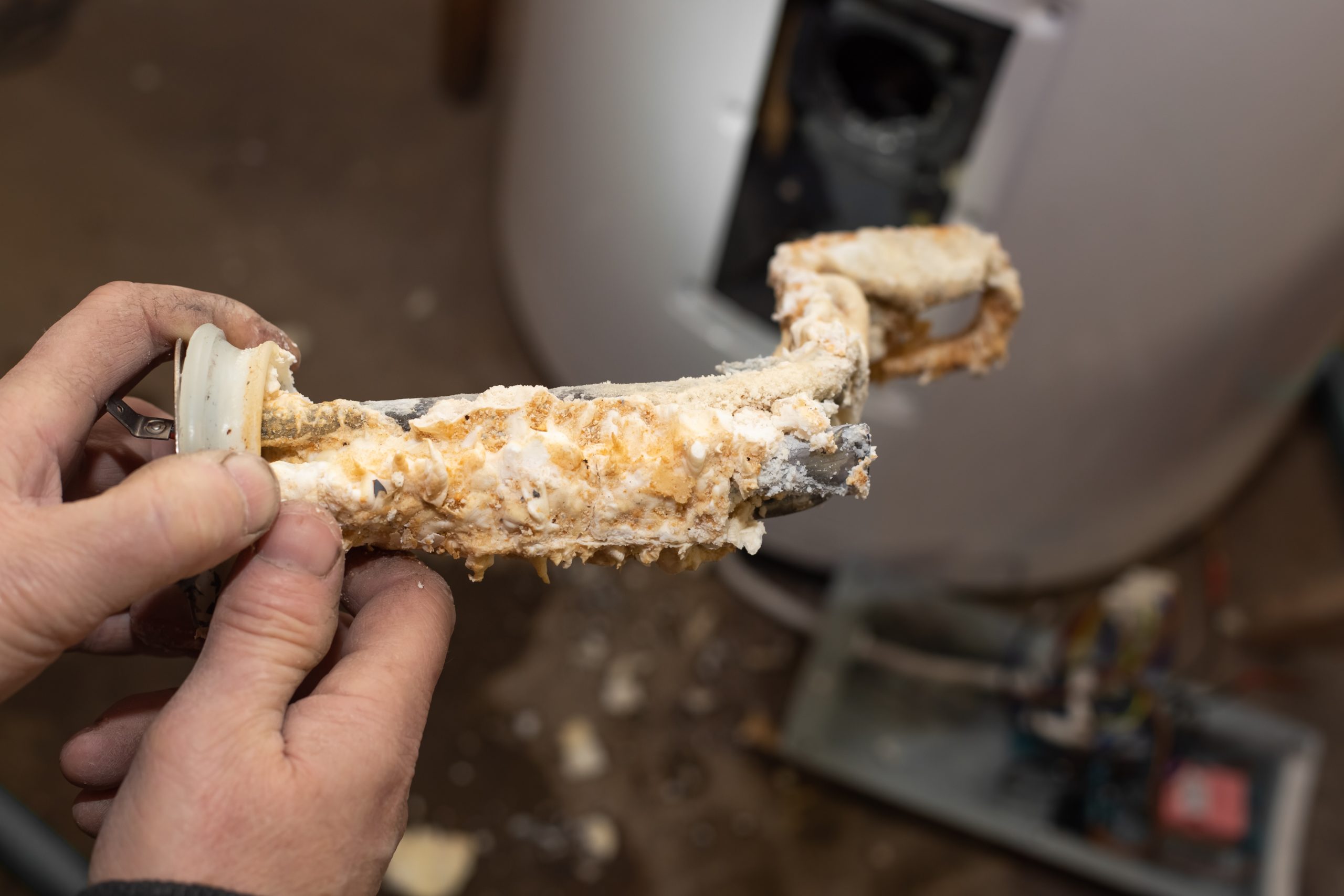Hard water is a terrible nuisance to many homeowners – a ruthless villain that ruins almost anything that crosses its path. It can damage everything from your skin and hair to your laundry, plumbing systems, bathroom fixtures, delicate surfaces, appliances, and many others. However, one specific device that this culprit notoriously affects is your water heater.
 Hard water is water that has a high level of minerals suspended in it, principally magnesium and calcium. This isn’t harmful for drinking; after all, these minerals are found in food. However, those minerals are not good for the plumbing in a home, and they also affect the ability to keep both the house and people in it properly clean (soap doesn’t dissolve well in hard water, leadng to filmy deposits, itchy skin, flat hair, and more). While these minerals probably won’t threaten your health, they can surely hinder the performance of your water heater and significantly reduce its lifespan. Your pipes and plumbing system can also suffer the same fate.
Hard water is water that has a high level of minerals suspended in it, principally magnesium and calcium. This isn’t harmful for drinking; after all, these minerals are found in food. However, those minerals are not good for the plumbing in a home, and they also affect the ability to keep both the house and people in it properly clean (soap doesn’t dissolve well in hard water, leadng to filmy deposits, itchy skin, flat hair, and more). While these minerals probably won’t threaten your health, they can surely hinder the performance of your water heater and significantly reduce its lifespan. Your pipes and plumbing system can also suffer the same fate.
We strongly recommend for our customers throughout Connecticut to find out if they’ve got hard water and to have a water softener installed if they do. There are plenty of reasons to do this, but we want to focus on one of the most important – we want to save your water heater from hard water.
How Does Hard Water Impact Your Water Heater?
No matter how efficient your water heater is, when hard water flows through it, the system’s efficiency will eventually decrease. Perhaps a few months or years later. That means you won’t be getting the energy savings and performance that you might have expected. The minerals in hard water are trouble for all water-using appliances because they leave behind limescale deposits and sediment. Hardness in the water can lead to many appliances failing years ahead of time.
The main reason water heaters face problems with hard water is because of how fast limescale can build up inside a water heater tank. Scale from the minerals will build up along the interior of the tank no matter what, but the heat in the tank speeds up the process of dissolving the minerals into limescale. The scale along the inside of the tank creates an insulating layer, making it harder for heat to escape from the tank. That’s not good news—because it means the tank will eventually overheat. That spikes pressure in the tank, causes leaks, damages the pressure expansion tank, and takes years off the life of the water heater.
Hard water also leaves a sediment layer across the bottom of the tank. This lowers the efficiency of the water heater and can cause bills to skyrocket. Although flushing the tank removes this sediment, it still isn’t something you want happening all the time.
Even tankless systems aren’t immune to the destructive impacts of hard water. Limescale can still build up on the heat exchanger, reducing the transmission of heat to the water. Hence, the efficiency of the tankless system suffers similarly to that of a traditional tank system.
Here’s a more detailed explanation on a few of the effects of hard water on water heaters:
- Shorter lifespan: The increased stress that hard water puts on your water heater can take a toll on the system over time. As a result, you’ll likely need to make more frequent repair calls throughout the lifetime of your water heater. Also, the unit will probably lose a few years of its life expectancy.
- Decreased efficiency: The limescale buildup from hard water can significantly reduce the efficiency of your water heater as it has to work harder and longer to keep your water warm. Reduced performance means that your water heating bills will increase and your water probably won’t be hot enough when you need it for things like showering, doing laundry, washing dishes, and so on.
- More frequent flushing: Usually, water heaters only need to be flushed about once per year. But if your home has hard water, the mineral buildup in the tank will require you to clean the system more often. Say, about every three months. Not only is that a waste of water, but it’s also a waste of your time.
Save Your Water Heater From Hard Water with a Water Softener System
You can schedule water testing with our professionals, and wey’ll be able to tell you if you have excess hardness in your water. If you do, we’ll advise you to schedule a water softener installation. This will not only help your water heater, it will solve all other hard water problems throughout your house.
A water softener will enhance the performance and efficiency of your water heater, lower your water heating bills, and keep your unit in pristine condition.
Your water heater is one of the most important appliances you’ll ever possess. Hard water continues to pose a grave threat to this precious device as well as other household components. Call our team of water heating and water treatment professionals to save your water heater from hard water today!
Sources: https://www.springwellwater.com/how-to-save-your-water-heater-from-hard-water/, https://www.hustedplumbing.com/blog/water-heater-service/hard-water-water-heater-bad-news/








